New YouGov research finds that more than a third of British people consider themselves to be just about managing financially
JAM is this political season’s hot new buzzword. An acronym for “just about managing”, the term originates from a report by the think tank Policy Exchange published in June of last year, where it was essentially used as a catch-all term to describe C1 and C2 voters.
Adopted by Theresa May in the early days of her premiership, she adapted the definition in a speech to apply to those families that feel like:
“You have a job but you don’t always have job security. You have your own home, but you worry about paying a mortgage. You can just about manage but you worry about the cost of living and getting your kids into a good school.”
Taking their cue from the Prime Minister’s words, another think tank – the Resolution Foundation – recently calculated that the “just about managing” strapline applies to around 6 million working households – or about 10 million adults.
However, whilst it’s one thing for entities to describe who they think is “just about managing”, that’s a different thing entirely to how many people consider themselves to be just about managing.
Now new YouGov research can reveal that as many as 37% of people would describe themselves as “just about managing” financially. Applied to Britain’s adult population as a whole, this translates to would translate as roughly 18.5m British adults – approaching twice as many as the Resolution Foundation figure.
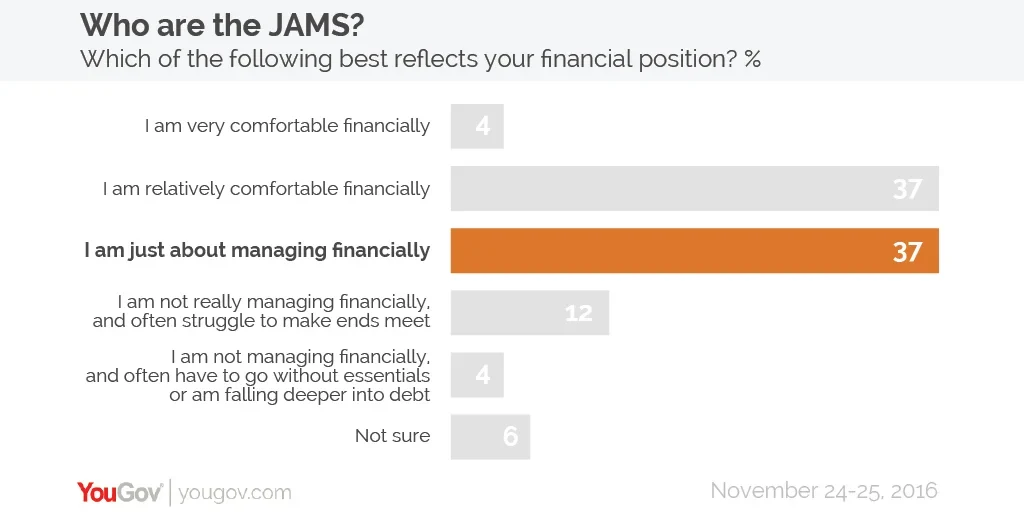
Who are the JAMs? Political breakdown
Conservative voters, Labour voters and non-voters each make up about a quarter of the JAMs population. UKIP voters make up a further 10%, the Lib Dems 7% and the Greens 4%, whilst votes for other parties account for the final 7%.
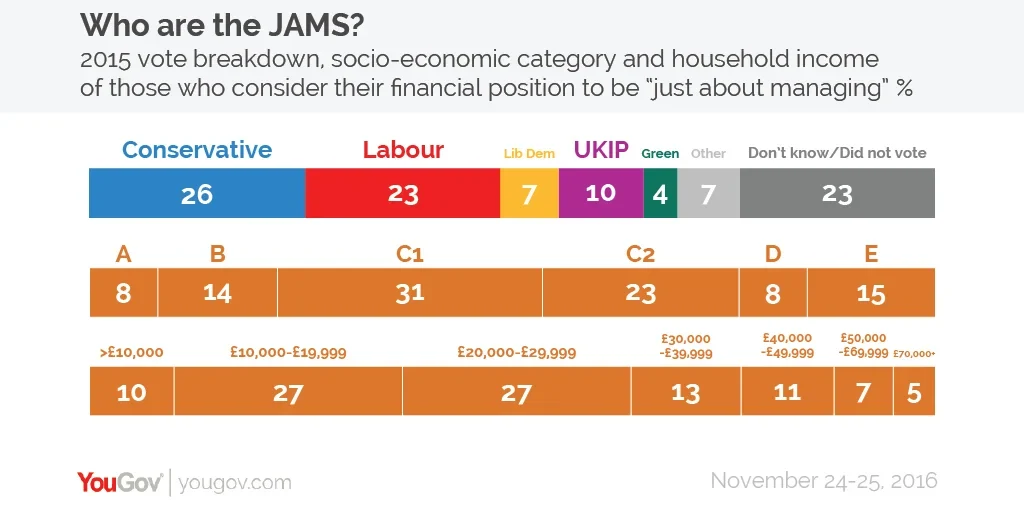
At 42%, 2015 Liberal Democrat voters are the most likely to consider themselves JAMs. A third of Conservative voters say they are JAMs, compared to 36% of Labour voters and 38% of UKIP voters. Labour and UKIP voters are much more likely than Conservative and Lib Dem voters to say they are not managing.
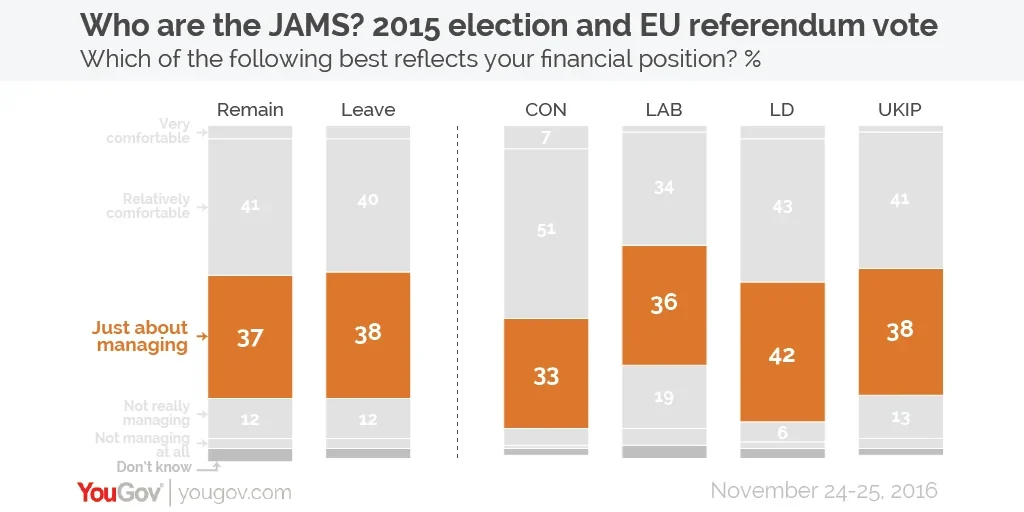
Given that JAMs seem to be central to the Conservatives’ ongoing electoral strategy, Theresa May will be highly disappointed to see that they are no more likely to consider voting for the Conservatives than the nation as a whole (42% vs 43%). In fact, JAMs are about as likely as the national rate to say they will consider or refuse to consider voting for any of the main parties.
Additionally, there does not appear to be any Brexit dimension to JAM status. There are practically identical proportions of Remain and Leave voters in each of the financial status categories, and they are just as likely to consider themselves JAMs as the national rate.
Who are the JAMs? Social breakdown
Harking back to the original definition in the Policy Exchange report, more than half of all JAMs are in the C1 (31%) and C2 (23%) socio-economic categories (that is, lower middle class and skilled working class). JAMs make up the largest single group in the C1, C2, D and E categories.
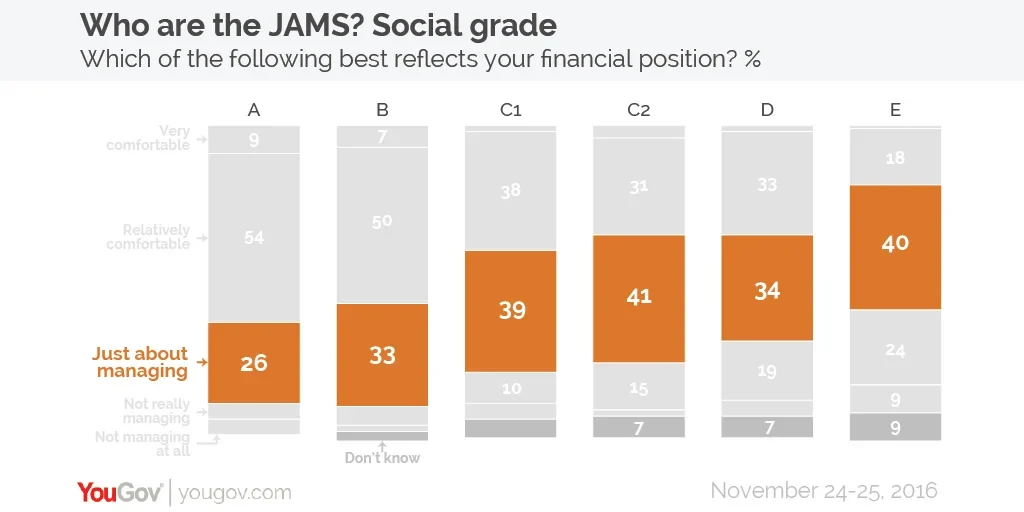
In terms of income, the majority of JAMs (54%) have a household income of between £10,000 and £29,999. At 41% for those on £10,000-19,999 and 40% of those on £20,000-29,999, JAMs make up the largest groups among these income brackets.
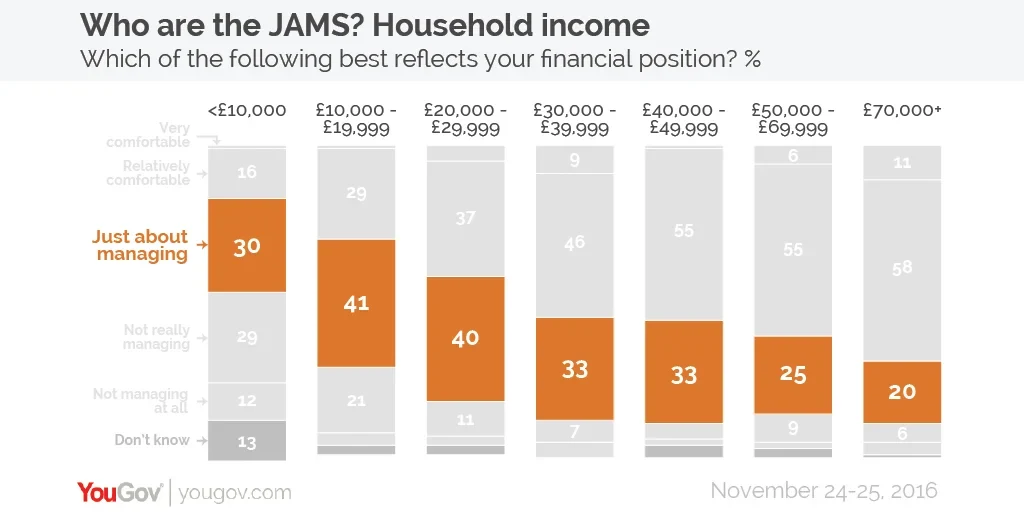
At 39%, people aged between 25 and 49 are the only age group that is more likely to consider themselves a JAM than the national average. They are also the only age group for which the number of people who are just about managing is higher than the number of people who say they are financially comfortable.
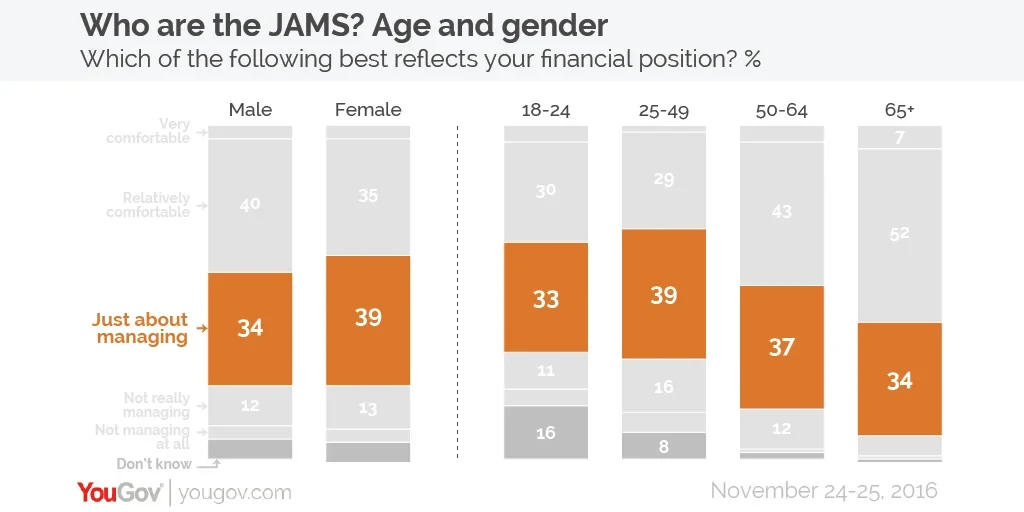
The Prime Minister’s speech seemed to imply she considers just about managing people to be homeowners with a mortgage. This group is indeed marginally more likely to be just about managing than the national rate, but it is in fact renters who are most likely to say they are JAMS. As many as 45% of private renters, as well as 39% of social renters, say they consider themselves to be just about managing.
What is clear is that, just like all of the various terms that have come before it – “hard working families”, the “squeezed middle”, the “strivers” – with “just about managing” the Prime Minister has hit on a phrase that resonates across the political spectrum. It is a relatable phrase that speaks to the majority of people who do not already consider themselves to be well off.
Or in other words, the group of voters every main party for decades has needed to woo in order to win an election.
Ultimately, it doesn’t matter what the government calls these voters: what will count is whether it is able to use the next three and a half years of this Parliament to help them do better than just about managing.
Photo: iStockphoto








